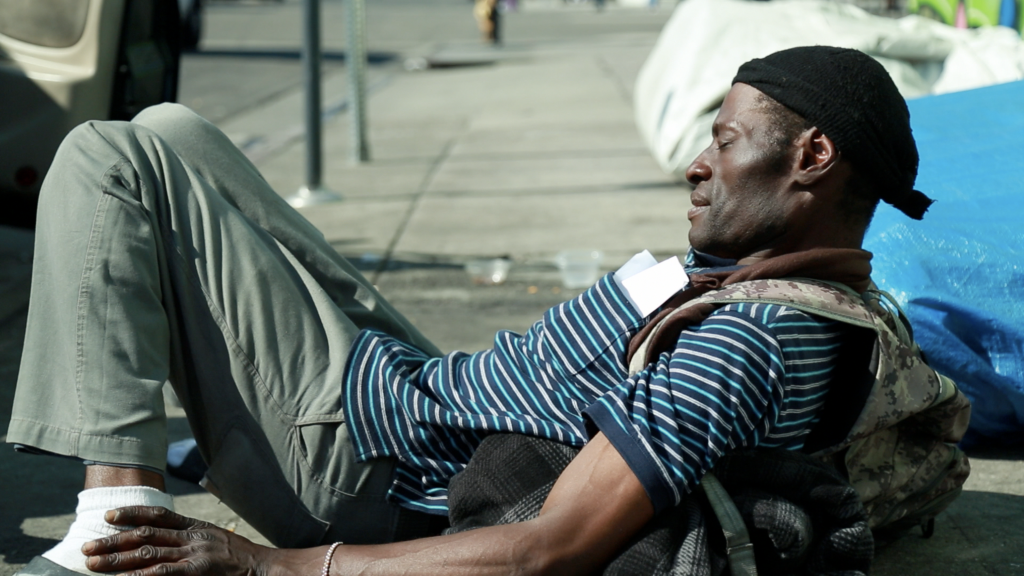
By Marc W. Polite
Homelessness is a major problem in American society. It’s a predicament that in this writer’s opinion, doesn’t have to exist. Due to the rampant greed of real estate companies, compounded with a severely weakened social safety net, it’s a reality that can befall anyone.
The struggles of the homeless in the major cities is too often overlooked. In a nominally civilized western society, there is a collective “out of sight, out of mind” approach to this enormous issue. They are stigmatized as people who have somehow failed, and are written off as such. It’s going to take a major policy shift to address this concern, but part of that struggle is to humanize those affected.
Filmmaker Delila Vallot aims to do just this with her latest documentary, Mighty Ground. Mighty Ground tells the story of Ronald Troy Collins, a homeless man who is struggling to turn his life around. With the help of unlikely friendships along the way, a homeless songwriter tries to kick a hard-core crack addiction and escape the grisly streets of skid row via his love of music.
Vallot, who is also based in Los Angeles, in an interview via telephone sheds some light on the extent of the homeless problem in downtown LA and how Ronald’s story encapsulates it. “It just seems barbaric, for there to be homelessness,” said Vallot. Going further, discussing the resources available, she noted that this country can eradicate homelessness. Speaking of how gentrified LA is, Vallot as a filmmaker wants to illustrate how easy it is for people to fall through the cracks.
During the conversation, she mentioned a disturbing statistic: For every $100 dollar rent raise, it creates a 15 percent rise in homelessness. This, is a pressing problem, and threatens the working poor with destitution. When you factor in the cost of policing and hospitalizing the homeless, it would actually cost less to house people than to leave them on the street. To go even further, the predicament of being undomiciled makes it more likely for the person affected to develop mental illness or wind up in jail. “The longer you are out on the street, the harder it is to get out of the street, ” said Vallot. In noting the obstacles that homeless people face, the purpose of the documentary is to help change the mindset of the viewer toward this neglected population. A sizeable portion of this population are women and children. This is often forgotten when people have an archetype of who the homeless are.
Mighty Ground made its world premiere at the Los Angeles Film Festival in June, and will be on the film festival circuit for the rest of this year. Vallot also said that there are talks in bringing the documentary to video on demand and cable. To learn more about this documentary, visit the Mighty Ground Facebook page.